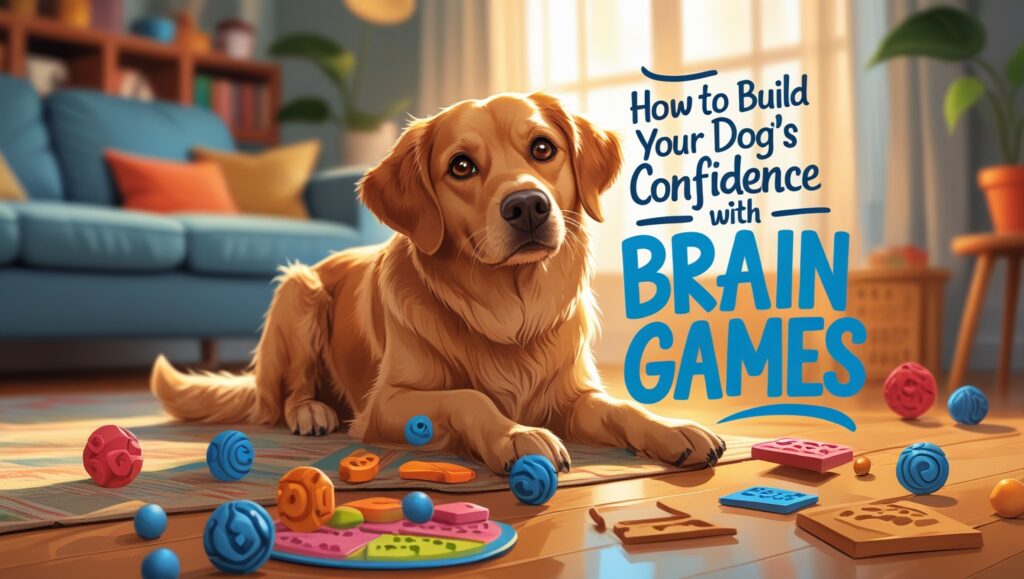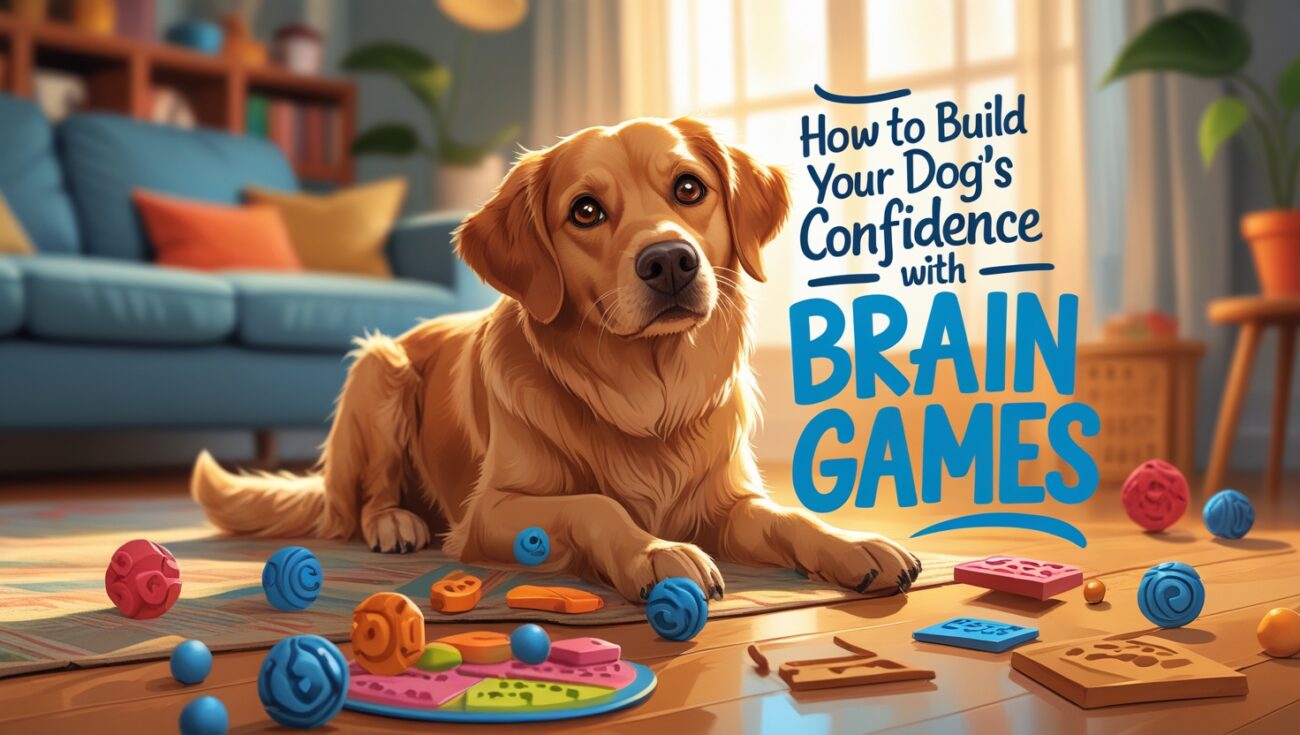How to Build Your Dog’s Confidence With Brain Games
When I first adopted my dog, she was shy and nervous — afraid of new people, scared of loud noises, and unsure of herself in new places. I wanted so badly to help her feel more confident, but I wasn’t sure how. That’s when I discovered how powerful brain games can be for building a dog’s confidence. Once I started using them, I watched her transform into a more secure and happy pup.
In this post, I’ll show you exactly how I used brain games to build my dog’s confidence — and how you can too. If you want the full program that worked for us, here’s my personal link:
Brain Training for Dogs — Click here to check it out

Table of Contents
Why Confidence Matters
A confident dog is a happy dog. When dogs feel secure, they:
- React calmly in new situations
- Handle stress better
- Are less fearful or reactive
- Build stronger bonds with their owners
- Enjoy life more fully
If your dog seems shy, anxious, or unsure, adding mental stimulation is one of the best ways to help them build confidence.
How Brain Games Build Confidence
When I started using brain training, here’s what I noticed:
- My dog became more willing to explore new environments
- She reacted less fearfully to sudden noises
- Her body language improved — tail up, ears forward
- She started approaching new people more easily
- She bounced back faster from stressful situations
That’s because brain games teach dogs how to think, solve problems, and trust their own abilities.
The Games That Helped Us
1. Simple Trick Training
I started with easy tricks like “touch” and “spin” — giving my dog quick wins that built her confidence.
2. Puzzle Feeders & Scent Games
Working her nose and brain gave her a sense of purpose — and success in these games made her feel more secure.
3. Engagement Games
Teaching her to focus on me helped her feel safe and supported — even in unfamiliar places.
If you want a full list of these games, this is the exact program I followed:
Brain Training for Dogs — Full Program Here
The Results
After a few weeks of brain training:
- My dog was braver on walks
- She was less startled by noises
- She approached new experiences with curiosity — not fear
- Her overall confidence and happiness grew so much
And it didn’t take hours — just 10–15 minutes a day of the right games made all the difference.
Final Thoughts
If your dog struggles with shyness, fear, or low confidence, please give brain games a try. They work wonders — I saw it firsthand with my own dog.
For me, this program was the key:
Brain Training for Dogs — Click here to check it out
Trust me — you’ll love watching your dog grow more confident, happy, and secure with each passing day!
Before I started using brain games, my dog would often freeze when encountering new people or unfamiliar places. I thought more socialization alone would help, but what really worked was giving her positive mental challenges that boosted her self-esteem.
I realized that each time my dog successfully completed a brain game or puzzle, it gave her a sense of accomplishment — and that feeling carried over into other parts of her life.
Another thing I noticed was that after brain training sessions, she seemed more relaxed and secure. Instead of pacing or acting nervous, she would settle calmly and confidently.
If you’re unsure where to start, this is the exact program that helped guide me:
Brain Training for Dogs — Full Program Here
One of the best things about this program is that it helps you build your dog’s confidence step by step — starting with easy games and gradually increasing the challenge as your dog grows more capable.
That progression is so important — because when your dog achieves small wins regularly, they start to believe in themselves more and more.
I also loved that the games built a stronger bond between me and my dog. By working through these challenges together, she learned to trust me — which made her feel safer and more confident in new situations.
If your dog is a rescue or has had negative experiences in the past, this style of training is especially helpful. It’s positive, force-free, and encourages dogs to feel good about learning.
Even for older dogs, these games are great. I saw a huge confidence boost in a friend’s senior rescue after she used this program — proof that it’s never too late to build your dog’s self-assurance.
And because the games are fun, your dog won’t even realize they’re doing “training” — they’ll just enjoy the experience and grow more confident with each success.
If your dog tends to hang back, get startled easily, or seems nervous in new settings, adding brain training can really help turn that around.
I also noticed that as my dog’s confidence grew, her other behaviors improved too — she became less reactive on walks, less fearful in the car, and more comfortable meeting new dogs.
Another great benefit? A confident dog is usually a happier dog — and when your dog feels good about themselves, it shows in their overall energy and behavior.
If you want to start seeing these changes in your own dog, this is the exact program that worked for us:
Brain Training for Dogs — Click here to check it out
Watching your dog blossom into a braver, more confident version of themselves is so rewarding — and it all starts with the right brain games!
Another thing I loved is how much these brain games helped my dog learn to bounce back from mistakes. Instead of shutting down when she got something wrong, she became more resilient — trying again with more confidence.
If you have a dog that tends to give up easily or gets frustrated, this program is perfect because it’s designed to build success habits that grow your dog’s self-esteem:
Brain Training for Dogs — Full Program Here
And you don’t need tons of time or fancy equipment. I saw big results with just 10–15 minutes a day using simple household items and a few puzzle toys.
The earlier you start, the faster your dog’s confidence will grow — but even if you have an older or very timid dog, this approach still works wonders.
If your goal is to help your dog become calmer, braver, and more confident in life — this program will guide you every step of the way:
Brain Training for Dogs — Click here to check it out

